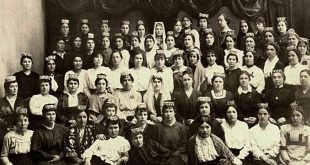The issue of divorce is discussed in this present book. The three main criteria for divorce are: adulthood, sanity and free volition. As with other legal issues there are a lot of similarities and differences between the five Schools of thought.
The Divorce (al-Mutalliq)
A divorcer should possess the following characteristics:
- Adulthood: Divorce by a child is not valid, even if of a discerning age (mumayyiz), according to all the schools except the Hanbali, which observes: Divorce by a discerning child is valid even if his age is below ten years.
- Sanity: Divorce by an insane person is not valid, irrespective of the insanity being permanent or recurring, when the divorce is pronounced during the state of insanity. Divorce by an unconscious person and one in a state of delirium due to high fever is also not valid. The schools differ regarding the state of intoxication. The Imamiyah observe: Such a divorce is not valid under any circumstance. The other four schools remark: The divorce is valid if the divorcer has voluntarily consumed an unlawful intoxicant. But if he drinks something permissible and is stupefied, or is coerced to drink, the divorce does not materialize.
Divorce by a person in a fit of anger is valid if the intention to divorce exists. But if he loses his senses completely, the rule which applies to an insane person will apply to him.
- Free volition: All the schools except the Hanafi concur that divorce by a person under duress does not take place in view of the tradition:
رُفع عن أُمتي الخطأ والنسيان وما استكرهوا عليه
My ummah have been exculpated of genuine mistakes, forgetfulness, and that which they are coerced to do.
The Hanafis say: Divorce by a person under duress is valid.
The practice of the Egyptian courts has been not to recognize the divorce by a person under duress or intoxication.
- Intention: According to the Imamiyyah, divorce pronounced unintentionally or by mistake or in jest is not valid.
Abu Zuhrah says (page 283): The Hanafi school considers divorce by all persons except minors, lunatics and idiots as valid. Thus divorce pronounced by a person in jest or under intoxication by an unlawful intoxicant, or under duress, is valid. On page 286 he writes: It is the accepted view of the Hanafi school that a divorce by mistake or in a state of forgetfulness is valid. On page 284 he observes: Malik and al-Shafi’i concur with Abu Hanifah and his followers regarding a divorce pronounced in jest, while Ahmad differs and regards such a divorce as invalid.
Bibliographic Information
Title: Divorce: According To Five Schools Of Islamic Law
Author: Muhammad Javad Maghniyah
Publisher: Islamic culture and relations organization
Language: English
Length: 42
ISBN: 964-6177-94-8
Pub. Date: 2012/12/18
 Ijtihad Network Being Wise and Faithful Muslim in the Contemporary World
Ijtihad Network Being Wise and Faithful Muslim in the Contemporary World

